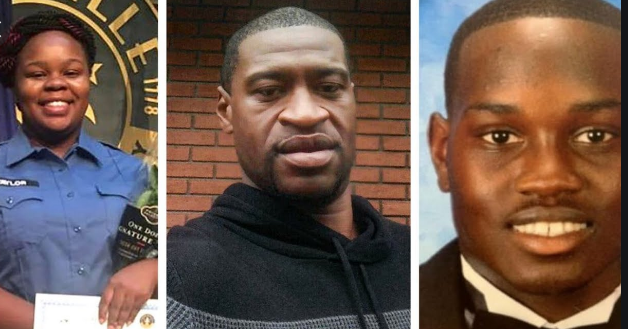Photo: YouTube
With a resurgence of social justice demonstrations emerging as former Minneapolis police officer Derek Chauvin is put on trial for the murder of George Floyd, Marathon Strategies and The BLK+Cross released a report today providing new insights into the role that social media and online activism played in driving political action on social justice reforms in 2020.
The report, “Say Their Names,” found a correlation between state-level legislative action on social justice issues in 2020 and the volume of online conversation about police reform in states. The analysis — which comes in the wake of demonstrations against police brutality following the deaths of George Floyd, Ahmaud Arbery, Breonna Taylor, and Rayshard Brooks — suggests that online activism played an essential role in driving political action on reforms. A copy of the report, “Say Their Names,” can be accessed by clicking here.
The report, prepared by the communications and research firm Marathon Strategies, analyzed online conversations about police reform in all 50 states and Washington, D.C., and compared them to the volume of police reform proposed, enacted, or sought by each state’s lawmakers. The analysis found that, in many cases, a larger volume of online conversation about a specific state’s social justice issues coincided with a greater number of police reform bills in that state.
This correlation was most notable in Minnesota, Georgia, New York, and Washington, D.C., which all saw more than 1 million mentions of state and social justice keywords from May 31, 2020, to September 15, 2020.
“Social justice cannot be achieved without action at all levels of government,” said Gail Brooks of The BLK+Cross. “As ‘Say Their Names’ demonstrates, national conversation about injustices facing the Black community can act as a catalyst for state and local reforms. It is up to all of us — no matter the color of our skin — to continue to fight for what is right and amplify the voices of BIPOC America.”
Overall, in the months following George Floyd’s death, states considered more than 221 police reform measures while governors took 72 actions – including signing laws, forming task forces, and issuing executive orders. Seven states then held special sessions to consider 98 bills, while governors took an additional 14 actions. Further, through September, lawmakers in the 19 states that had not been in session during the summer released at least 123 reform proposals and drafts, while governors took nine executive actions.
“This report illustrates the power of digital amplification to enact change at all levels of government,” said Marathon CEO and founder Phil Singer. “These findings indicate that the nationwide online discussion of social justice issues has been effective in delivering legislative proposals and reforms while demonstrating that anyone who wants to drive policy change must be paying close attention to what’s being said online about the issue.”
Marathon Strategies measured the data by analyzing a number of social justice keywords, including the names of nationally and locally recognized victims of police brutality and terms associated with Black Lives Matter demonstrations, that appeared in the same publication or social media post as a mention of a state or state keyword, including state capitals, names of politicians, and names of major demonstration areas. Bills, actions, and proposals were identified using a variety of public records sources as well as dozens of state and local databases.








